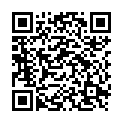|
|
|
| Module code: E603 |
|
|
7P (7 hours per week) |
|
7 |
| Semester: 6 |
| Mandatory course: yes |
Language of instruction:
German |
Assessment:
Oral examination / Laboratory reports
[updated 12.03.2010]
|
E603 (P213-0152) Electrical Engineering, Bachelor, ASPO 01.10.2005
, semester 6, mandatory course
|
105 class hours (= 78.75 clock hours) over a 15-week period.
The total student study time is 210 hours (equivalent to 7 ECTS credits).
There are therefore 131.25 hours available for class preparation and follow-up work and exam preparation.
|
Recommended prerequisites (modules):
None.
|
Recommended as prerequisite for:
|
Module coordinator:
Prof. Dr. Benedikt Faupel |
Lecturer:
Prof. Dr. Benedikt Faupel
Prof. Dr.-Ing. Dietmar Brück
[updated 12.03.2010]
|
Learning outcomes:
In this tightly-scheduled laboratory course, students will learn to develop efficient solutions to problems of practical relevance in automation engineering (microprocessors, signal and image processing, industrial control systems, programming, systems theory and closed-loop control systems).
The course enables students to apply and extend the knowledge gained in earlier semesters in order to solve problems on laboratory test rigs. Students are encouraged to work in teams to develop their own solutions.
[updated 12.03.2010]
|
Module content:
Lab course I:
1.Automation engineering with PLC systems
Realising simple PLC programs using IEC 61131-compliant programming methods
/Integration of process engineering simulation models (SIMIT)
Creating process control sequences using S7 Graph
Open-loop and closed-loop drive control using the SIMATIC S7-300 controller
(servo drives, stepping motors, variable-frequency drives)
Process control using a SIMATIC S7-300 controller (level monitoring and
control, process control)
Designing fieldbus systems and visualization using ProTool/Pro and WinCC
flexible.
2.Simulation using Matlab/Simulink
Controller design and control loop analysis using MATLAB/SIMULINK
Investigating the influence and variability of control parameters (PID
control, discontinuous controllers)
Investigating and modelling discrete control loops
Designing and dimensioning controllers for instable and non-minimum-phase
control systems
Lab course II:
1.Basic experiments with microcontrollers using an experimenting board and
computer interface
2.Drive control using a variety of SPS systems
3.Image processing using industry standard systems
4.Unix and its relevance in automation engineering
5.Robot control in a variety of applications
6.Applications of microcontrollers in measurement and instrumentation
engineering
[updated 12.03.2010]
|
Teaching methods/Media:
Lab test stations with SIMATIC components, lab computer running Matlab/Simulink and Siemens software modules (Step 7, S7 Graph, PLCSIM, ProTool/Pro, Standard PID Control, SIMIT); video projector, internet, course notes, overhead transparencies, CDs
[updated 12.03.2010]
|
Recommended or required reading:
Instructions for laboratory exercises
Siemens: S7 training documents (www.siemens.de/sce)
Wellenreuther, Zastrow: Automatisieren mit SPS. Vieweg-Verlag. Wiesbaden
Wellenreuther, Zastrow: Automatisierungsaufgaben mit SPS, Vieweg-Verlag. Wiesbaden.
[updated 12.03.2010]
|


